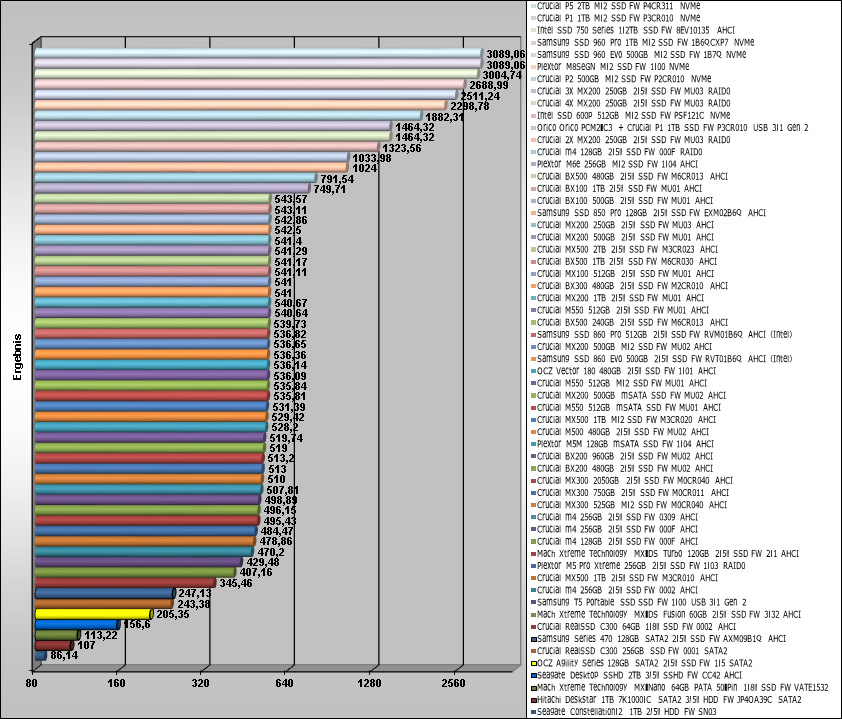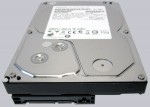
Let us continue with the benchmark results. SATA2 drives are currently tested with an ASRock M3A790GXH/128M motherboard and SATA3 drives are currently tested with an ASRock 890GX Extreme3 motherboard. At present, Microsoft Windows 7 RC Ultimate Edition is used as the operating system.
The SSD/HDD drive speed was examined and compared with the following benchmark software:
AS HDD Benchmark 1.4.3704.27281 – Download
ATTO Disk Benchmark v2.46 – Download
CrystalDiskMark 3.00 – Download
HD Tach 3.040 – Download
SiSoftware Sandra 2010c – Download
The AS SSD benchmark values offers a very good reference point of the maximal possible reading and writing performance, the speed with smaller files and the respective access time. This software is designed for SSDs, so we omitted this usual AS SSD benchmark test for this HDD.
The ATTO disk benchmark values gives a very good overview about the write and read rate on different file sizes. More than 128 MB/s write speed with larger transfer sizes are very high for a SATA2 drive and the result of the reading speed with 126 MB/s starting from 64 KB transfer size is also well.
Here is a Snipping screenshot of the ATTO Disk benchmark values:
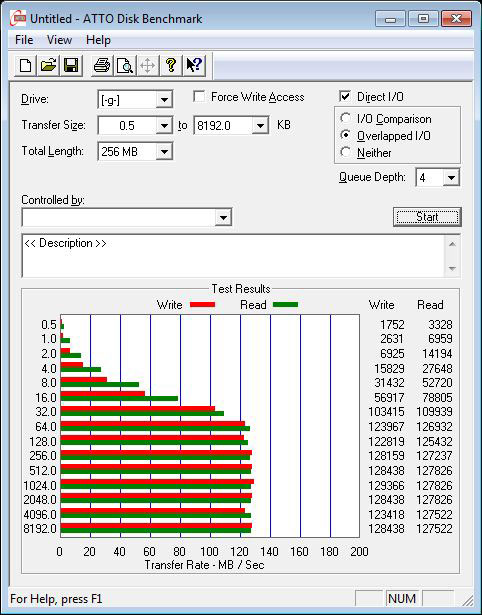
The ATTO disk of benchmark values are compared with a small transfer size of 32KB and a large transfer size of 8192KB. The bar chart already shows a first comparison to a 128GB OCZ Agility SSD of the last review.
Here is a comparison of the ATTO disk benchmark values, which are getting updated with soon coming drives:
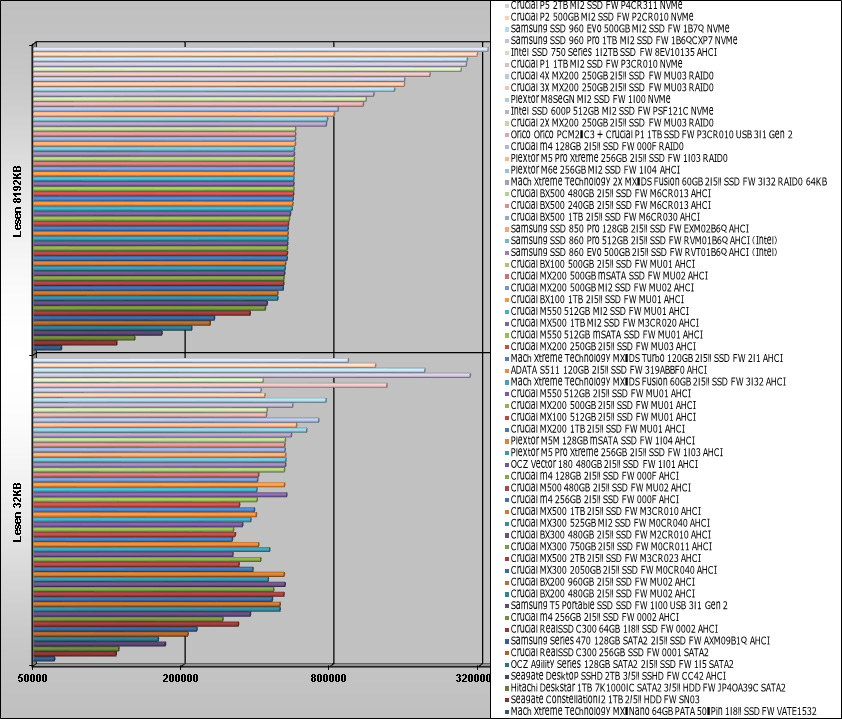
With CrystalDiskMark one can get a balanced measurement of the performance with different transfer sizes.
Here is a Snipping screenshot of the CrystalDiskMark values:
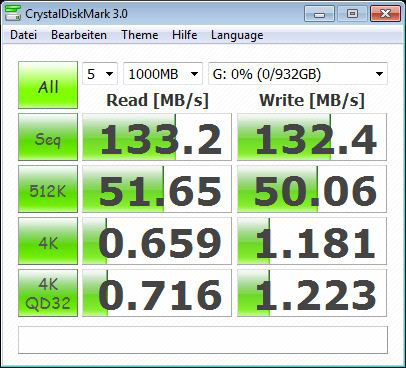
The following diagram shows the CrystalDiskMark results once again compared with other HDDs and platter drives, which are extended step by step. In the CrystalDiskMark comparison one can already see the differences to the previous tested SSD, where the reading and writing performance is clearly faster in all results. But the results is OK for a conventional hard disk.
Here is a comparison of the CrystalDiskMark values, which are getting updated with soon coming drives:
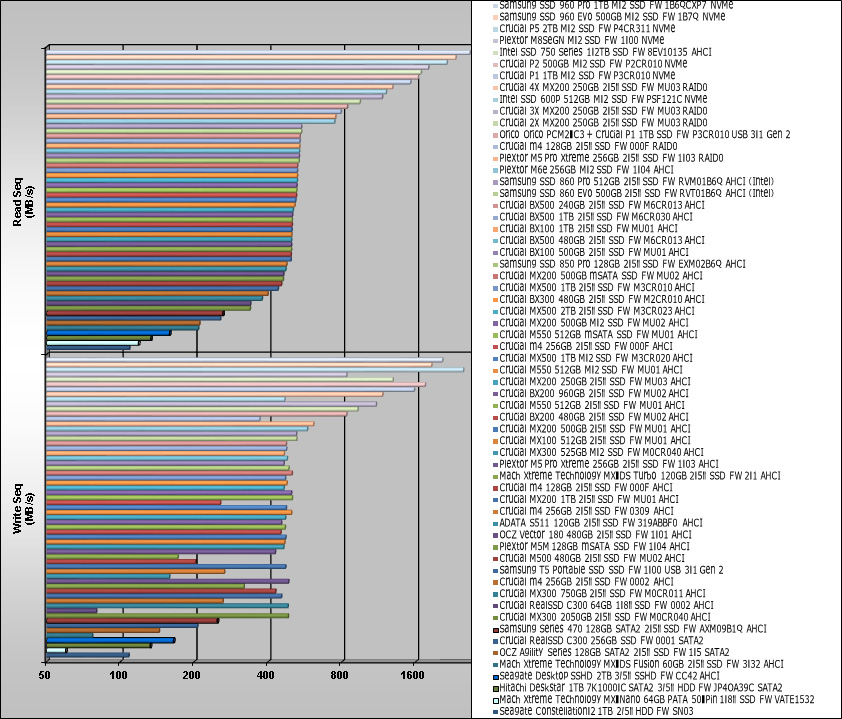
With the HD Tach benchmark values one can recognize the gradient of the performance. Here’s again a good comparison to a solid state drive, with nearly equal results from the beginning to the end. The Hitachi Deskstar 7K1000.C 1TB HDD shows only a few little performance break-downs and offers at the slowest point approx. 70MB/s read/write performance. The Burst Speed should be a value from the cache, because it’s nearly the datarate of SATA2. But the average seek time is with 14.6ms unfortunately a bit high and could be faster. If you like to compare these results with the read speed of the previous tested SSD, you can move the cursor over this OCZ Agility 128GB SSD link.
Here is a Snipping screenhot of the HD Tach benchmark values:
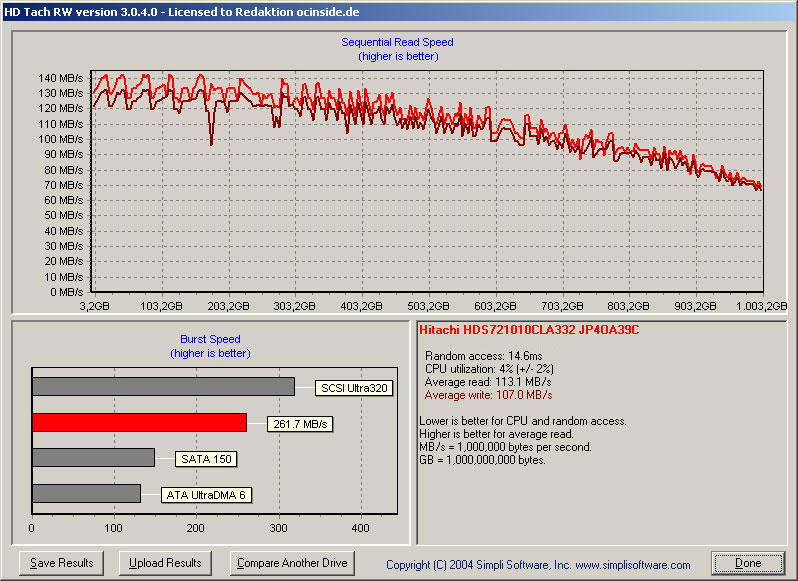
The comparison of the HD Tach benchmark results shows, how slow the reading speed and the average access time of the Hitachi Deskstar 7K1000.C 1TB is in comparison to an SSD. Sure, we didn’t expect another result and it’s difficult to compare these drives with such a high price difference. Upcoming tests will show, how this result looks compared to other drives.
Here is a comparison of the HD Tach benchmark values, which are getting updated with soon coming SSD and HDD drives:
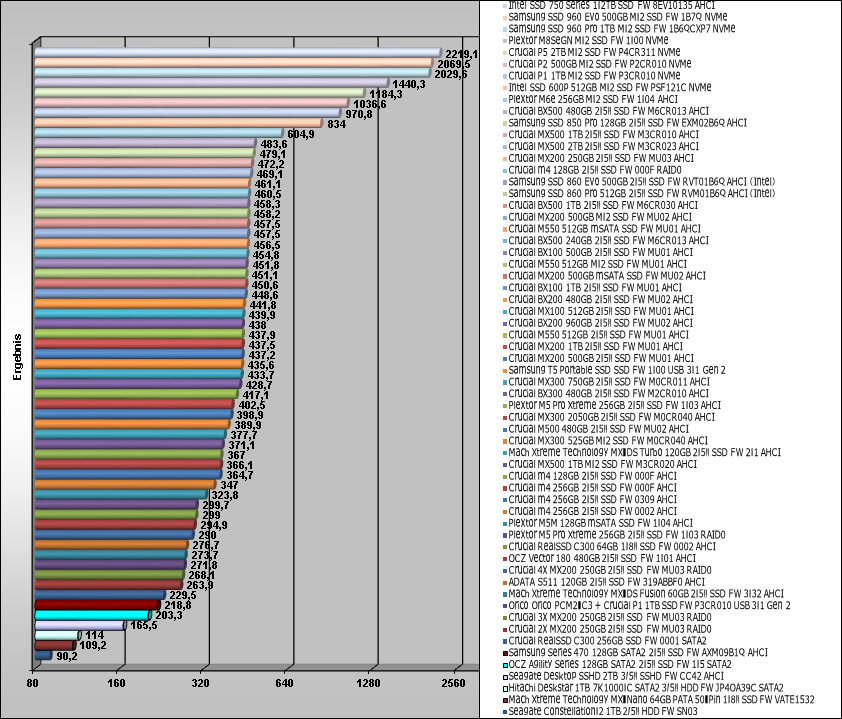
SiSoftware Sandra benchmark result
Of course, SiSoftware Sandra benchmark should not be missing in this test series. SiSoftware offers with their SiSoft Sandra program a very comprehensive tool for some years, which contains a lot of tools to get very reliable test results of all hardware components. The average access time of the Hitachi Deskstar 7K1000.C 1TB HDD was in SiSoftware Sandra with 12,83ms a bit faster than the results of HD Tach.
Here is a Snipping screenshot of the SiSoftware Sandra benchmark values:
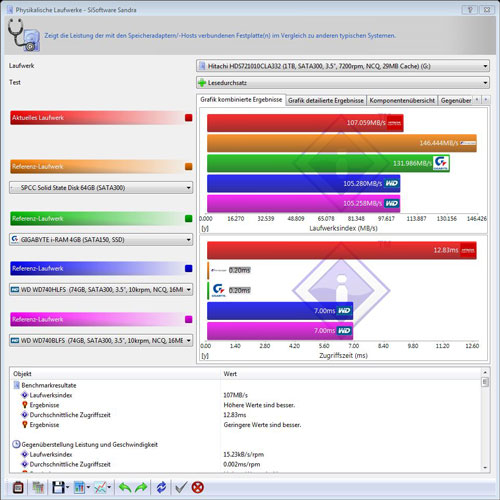
Here is a comparison of the SiSoftware Sandra benchmark values, which are getting updated with soon coming drives:
